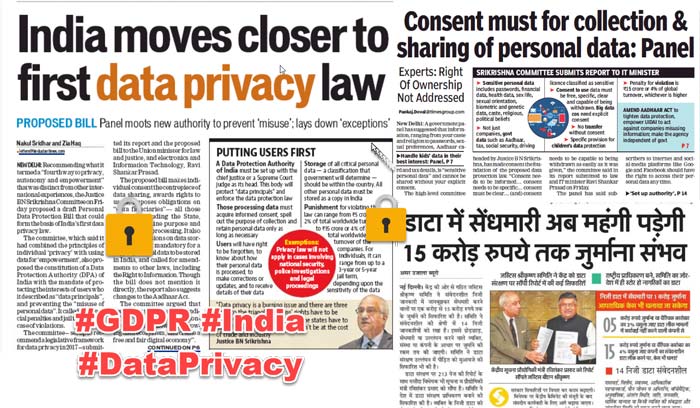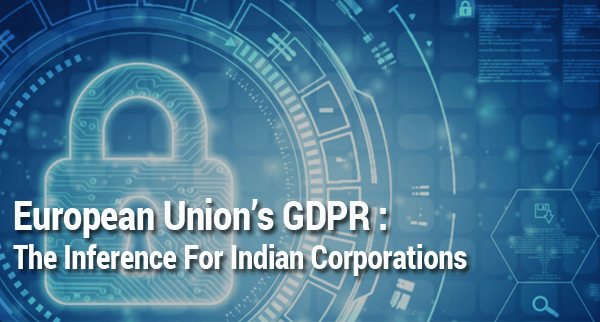Data Privacy Law GDPR Coming to India
Data Privacy Law or General Data Protection Regulations is the new Privacy Protection Regulation law which is going to be adopted soon by Organizations in India as the main purpose of the GDPR is to ensure that the privacy and personal data of every individual are steadfastly protected. It seeks to regulate the purpose for and the manner in which several entities, including governments, collect and process data about individuals using automated means data controllers.
India is behind in schedule to compared the advancements several western nations have made in privacy and data protection. This becomes a cause for concern when a regulation (such as the GDPR) sets the global standards for data protection. A situation where Indian companies are arm-twisted into accepting EU standards of data protection is undesirable but wholly possible given the flurry of activity following the GDPR. The data protection laws in India are poorly drafted and application of the same can raise serious questions taking into consideration.
India should take this chance to objectively examine how the GDPR is rolled out and the way it fares. So as to make sure that it creates a legislation that lives on, it should determine the core principles on that an information protection law are going to be found. With the divide between technology and therefore the law gaping wider with every passing day, India’s information protection law should aim to bridge any data gap between information users and data controllers. It should build in review mechanisms to make sure that controllers are command accountable, whereas at a similar time encouraging them to innovate voluntary best practices for privacy. They ought to learn from the GDPR and flesh out the rights for each individual has over her information as observed from the GDPR, India should not over-regulate, as this can be one of the surest ways that of creating a chilling effect on each technology as well as privacy.
It is vital to accept GDPR to the fullest, as GDPR lays heavy monetary penalties on non-compliant organizations. Accepting a privacy designed move can increase the organization’s awareness of privacy and information protection problems, and address vulnerabilities promptly.
Areas which require focus under the GDPR are:
1 Training and Awareness
2 Data process & Accountability
3 Notice and Consent
4 Cross-border information transfer
5 Third-party and seller management
6 Transparency of data and communication
7 Data security, storage, breach notification
Privacy and protection of an individual’s information is and will be the highest priority of the governing bodies and it’s time that we tend to devised regulative rules for an equivalent. That being aforesaid, it’s very imperative to revise the current state of information protection and privacy laws in India to safeguard personal information and data in a very rightful manner. Stronger information protection and governance laws are the necessity of the hour.
As concluded, GDPR will enhance the correct result by word and spirit, if the protection of information which measures by enterprises and empowers their customers, as well as businesses operative of different location, can also take over the GDPR standards as for data protection and privacy progressively becomes a worry.
#GDPR #DataPrivacy #GDPRIndia #BS10012 #PIMS #AAdhar #AAdharIndia #GDPRAAdhar

